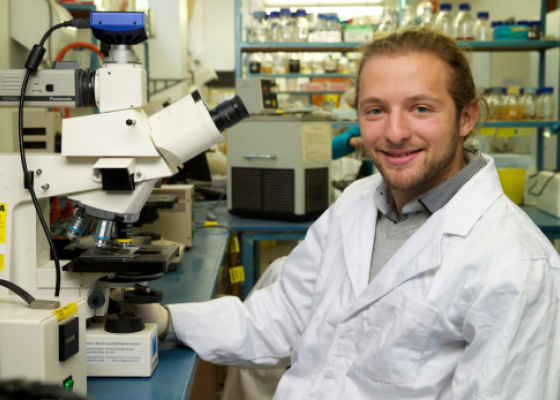Researchers found that a diet rich in date palm fruit improved memory, learning and coordinated-motor movement, and reduced anxiety and amyloid beta levels in mice with a precursor for Alzheimer’s disease.
An international research team from Oman and Australia, including CHeBA post-doctoral fellow Dr Nady Braidy, compared transgenic mice expressing human amyloid precursor protein (APP) as a model for early onset familial Alzheimer’s Disease, with control wild-type mice. Their food was supplemented with 2% and 4% crushed dates, which are rich in phenolic compounds and have excellent antioxidant and free radical scavenging properties.
“Our results suggest that a diet rich in date fruits may have beneficial effects in lowering the risk, delaying the onset or slowing down the progression of Alzheimer’s disease,” explained Dr Braidy.
Researchers found a significant reduction in plasma levels of the protein amyloid beta (1-40 and 1-42), one of two pathological hallmarks for Alzheimer’s disease, in mice eating the 2% date diet and an even higher reduction in mice eating the 4% date diet.
Researchers also identified significant gains in cognitive flexibility, learning and spatial memory, as well as improvements in impaired coordinated motor movement, during field and maze tests of mice with APP eating the date diet.
Interestingly, researchers also identified that mice with APP showed severely increased anxiety, which was significantly reduced when their diet was supplemented with dates.
“Given that increased anxiety is a problematic symptom for human patients with Alzheimer’s Disease, the date diet may be an additional therapeutic strategy,” said Dr Braidy.
“At present, these findings are only relevant in mice, however we believe this study provides a strong case for further translation into the clinic.”
This publication is available through the CHeBA website.


